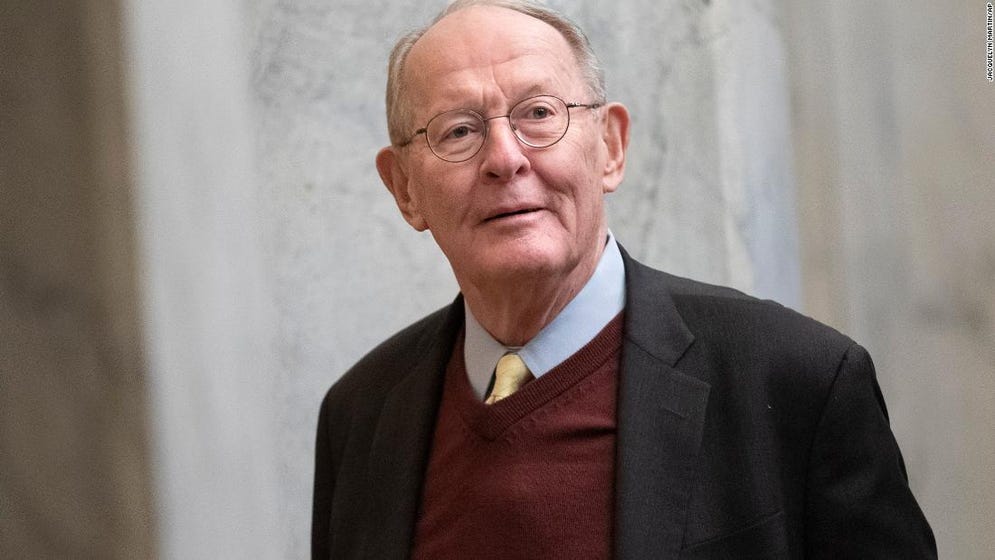
For nearly three decades, Lamar Alexander dominated the landscape of Tennessee politics. A member of the Republican Party, Alexander is the only Tennessean ever popularly elected both Governor and U.S Senator, serving a combined 26 years in these two positions. A lawyer by training, Alexander is credited with helping to bring the auto industry to the Volunteer State and leading Tennessee to become the first state to pay teachers more for teaching well. In 1991, then-President George H.W. Bush named Alexander U.S. Secretary of Education, where he helped the implementation of Education 2000. Originally, Alexander began his career as a clerk to the U.S. Fifth Circuit Court of Appeals in New Orleans. In addition to politics, Alexander also served as the president of the University of Tennessee from 1988 until 1991. In 2016, the nation’s governors created the James Madison Award to recognize members of Congress who support federalism and the 10th Amendment of the U.S. Constitution guaranteeing states’ rights. The governors named Alexander as the first-ever recipient of the award for his work to fix No Child Left Behind.
A seventh-generation Tennessean, Alexander attended Vanderbilt University on a scholarship. Right away, he became an active, high-profile student, even joining the Sigma Chi fraternity. As an official member of the Vanderbilt track team, Alexander ran on the one-mile relay, 440-yard relay, and the 440-yard dash. Alexander was also highly cerebral, leading him to serve as editor of the Vanderbilt Hustler, the primary student newspaper on campus. In this position he advocated for racial integration of the student body. In 1962, he graduated Phi Beta Kappa from Vanderbilt University with a Bachelor of Arts degree in Latin American studies.
The connection between Alexander and Vanderbilt has always been a strong one. As a student-athlete, his accomplishments landed him in the Vanderbilt Athletic Hall of Fame. As a politician, his actions and influence have helped ensure that institutions like his alma mater can continue to solve the greatest challenges of the day. More recently, as a generous benefactor, Alexander once again proved his mettle. In 2011, it was announced that the elder statesman was donating a large archive of materials that documented his historic career in state and national politics. Known as the "Alexander Papers," the prized collection contains correspondence, video, photographs, manuscripts, and memorabilia that document his journey from being in high school to being in the national spotlight as a high-ranking U.S. Senator. In total, the invaluable collection contains approximately 600 cubic feet of material dated from 1955 to 2002. “This is clearly one of Vanderbilt’s most important collections," said Connie Vinita Dowell, dean of libraries at Vanderbilt. "The archive will be a national treasure mined by scholars for generations."
